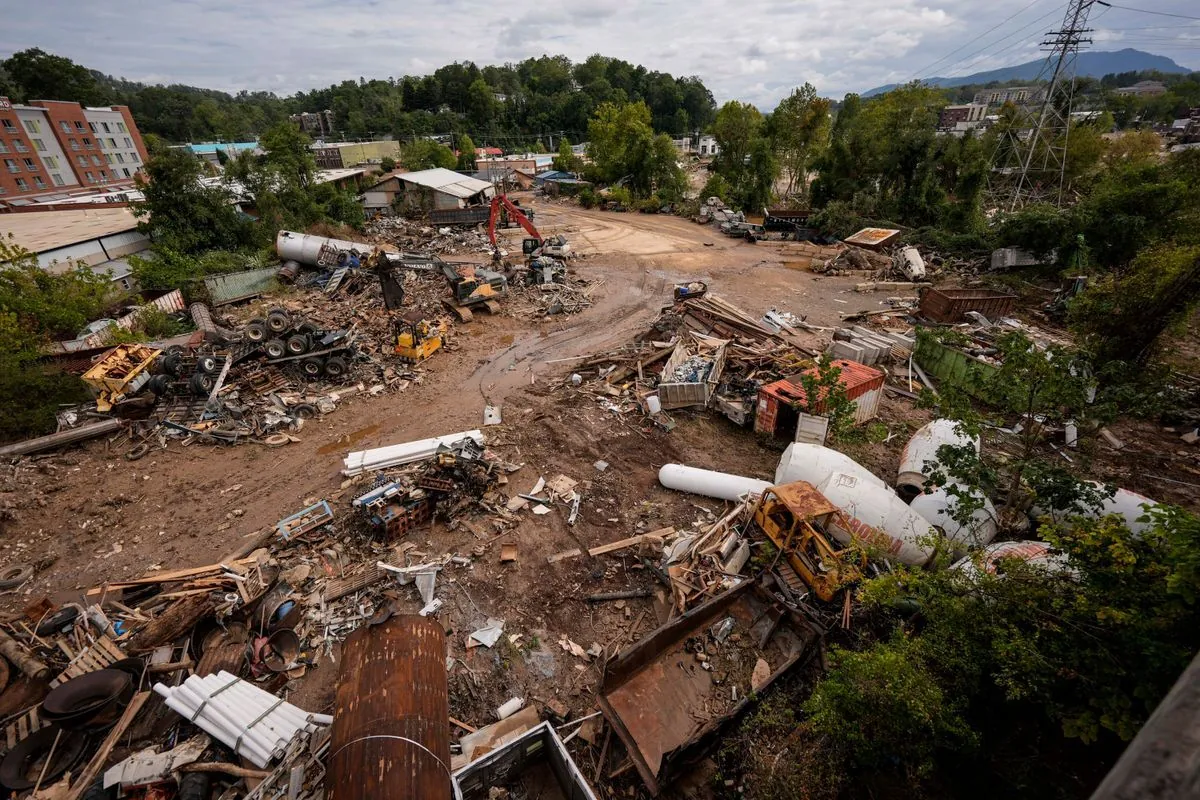The aftermath of Hurricane Helene continues to unfold as rescue operations enter their second week. With at least 215 fatalities confirmed, Helene has become the most lethal hurricane to strike the U.S. mainland since Hurricane Katrina in 2005, which resulted in over 1,800 deaths.
Rescue teams face significant challenges as they navigate through the Blue Ridge Mountains, a part of the larger Appalachian range. The region's topography, characterized by peaks like Mount Mitchell standing at 6,684 feet, complicates search efforts. Rescuers must contend with washed-out roads, fallen power lines, and mudslides to reach isolated areas and locate missing individuals.
Sheriff Quentin Miller of Buncombe County, which includes the artistic hub of Asheville, reported 72 confirmed deaths in his jurisdiction alone. Despite the grim toll, hope persists for finding survivors. Miller emphasized:
"Your safety and well-being are our highest priority. And we will not rest until you are secure and that you are being cared for."
The Cane River area in western North Carolina has been particularly hard-hit. Mark Harrison, chief medical officer for the Pensacola Volunteer Fire Department, described the challenges of accessing affected areas, with crews having to cut through fallen trees to reach victims.
In Watauga County, near the Tennessee border, rescue teams are encountering new obstacles as they progress from main roads to smaller, winding paths. Charlie Wallin, a county commissioner, explained the unpredictable nature of the damage:
"Everything is fine and then they come around a bend and the road is gone and it's one big gully or the bridge is gone."
The hurricane's impact extends beyond North Carolina, with South Carolina and Georgia also suffering significant losses. As part of the recovery efforts, power restoration is gradually progressing. For the first time since the hurricane made landfall on September 26, 2024, the number of homes and businesses without electricity has dropped below one million.
Federal assistance is now being mobilized. President Biden surveyed the devastation from the air on October 2, 2024. Subsequently, the administration announced federal funding for debris removal and emergency protective measures in the affected states. This aid will cover costs for first responders, search and rescue teams, shelters, and mass feeding operations.
As the Atlantic hurricane season, which officially runs from June 1 to November 30, continues, the impact of Hurricane Helene serves as a stark reminder of the increasing intensity of these storms, potentially influenced by climate change. The National Hurricane Center continues to monitor the situation, while organizations like FEMA, the U.S. Army Corps of Engineers, and the American Red Cross play crucial roles in the ongoing relief efforts.
The road to recovery will be long, with debris removal and power restoration likely to take weeks or even months. However, the resilience of affected communities, coupled with national support, provides hope for rebuilding in the wake of this devastating natural disaster.
